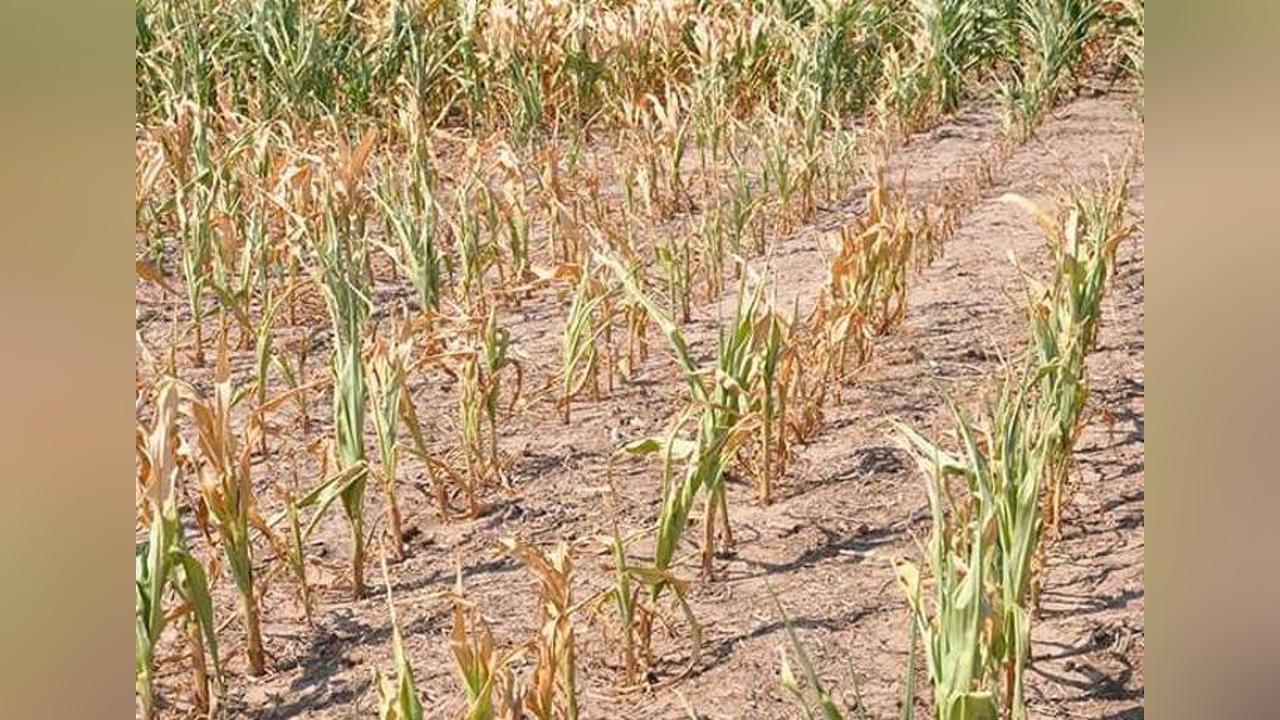Africa-Press – Ghana. In the quiet village of Kanfiehiyili in the Kumbungu District, farmers sowed seeds guided by tradition, but the anticipated rains never arrived, leaving crops to wither under a prolonged drought.
For lifelong farmers Abubakari Andani and Abdul-Hakeem Issah, the signs were clear.
“The leaves are dancing, and the birds are seeking shelter. It was the same feeling last two years when we recorded a lot of rain,” Abubakari said, watching the clouds drift northward.
“It means the rains will come soon,” he predicted.
For decades, farmers relied on ancestral methods—cloud patterns, bird migration, moon phases, and insect behaviour—to predict rainfall. In a region with limited access to weather radios or smartphones, tradition served as the weatherman.
But this season, the rains failed.
By mid-year, the fields remained barren. Maize shrivelled, millet turned to dust, and nearly 20 acres of crops were lost between the two families.
“I lost everything, and I am still struggling to recover from the shock,” Abubakari lamented.
Some residents migrated south in search of menial jobs. Farmers acknowledged shifting weather patterns but lacked understanding of climate change, attributing poor yields to “weak” land needing more fertiliser.
Across Northern Ghana, where over 70 per cent of livelihoods depend on rain-fed agriculture, climate change is disrupting age-old practices.
A report from the Northern Regional Department of Agriculture indicated that in 2024, 460,784 hectares—60 per cent of cultivated land—were affected by drought in the Bono, Bono East, Oti, Northern, North-East, Savannah, Upper East, and Upper West regions, impacting an estimated one million people.
Mr Edward Karaweh, former General Secretary of the General Agricultural Workers Union, said many farmers could not recover in time for the current planting season.
He warned of rising food inflation and described traditional weather prediction methods as unsustainable.
The Ghana Meteorological Agency (GMet) has been issuing seasonal forecasts to guide farmers, but some say the information is too generalised to be useful.
Mrs Francisca Martey, Deputy Director for Research and Applied Meteorology at GMet, said forecasts are shared with the Ministry of Food and Agriculture and urged extension officers to improve dissemination.
“Last year, we predicted the long-dry-spell in March, but people did not take us seriously,” she said. GMet hopes to collaborate with telecom companies to deliver forecasts via mobile phones.
Artificial Intelligence (AI) tools are emerging as a solution. By analysing satellite data and soil sensors, AI can deliver hyper-local forecasts to even basic mobile phones.
Platforms like Esoko and Farmerline are making progress, though coverage remains limited.
Professor Jerry John Kponyo, Principal Investigator at the Responsible AI Lab (RAIL), said AI can predict droughts, yield outcomes, and disease outbreaks.
“Because of climate change, the indigenous avenues through which the farmer can say I’m going to plant in the wet season, is no longer happening,” he said. “So, leveraging on AI, we are able to help the farming crew to be able to tell when exactly to plant.”
RAIL is working with farmers to integrate indigenous knowledge with AI, though poor data quality remains a challenge.
In Kenya and other countries, farmers use mobile apps to scan crop leaves and detect diseases early, improving yields.
Dr Peter Boamah Otokunor, Director of Presidential Initiatives in Agriculture and Agribusiness, said the Government would prioritise technology to make farming attractive and profitable.
He said the Feed Ghana initiative would develop simple tools to support planning, pest control, and climate resilience.
The stories of Abubakari and Abdul-Hakeem reflect a broader crisis.
Climate change is reshaping agriculture, and tradition alone cannot guide farmers through erratic seasons.
While AI offers promise, it must be paired with education, access, and cultural integration.
According to the 2025 Mid-Year Budget Review presented by Finance Minister Dr. Cassiel Ato Forson, agriculture contributed 26.4 per cent to first-quarter growth, helping the economy expand by 5.3 per cent—the highest since 2020.
Without urgent action, climate change could reverse these gains. A national commitment is needed to democratise weather data, localise AI tools, and empower farmers to adapt and thrive.
Source: Ghana News Agency
For More News And Analysis About Ghana Follow Africa-Press







